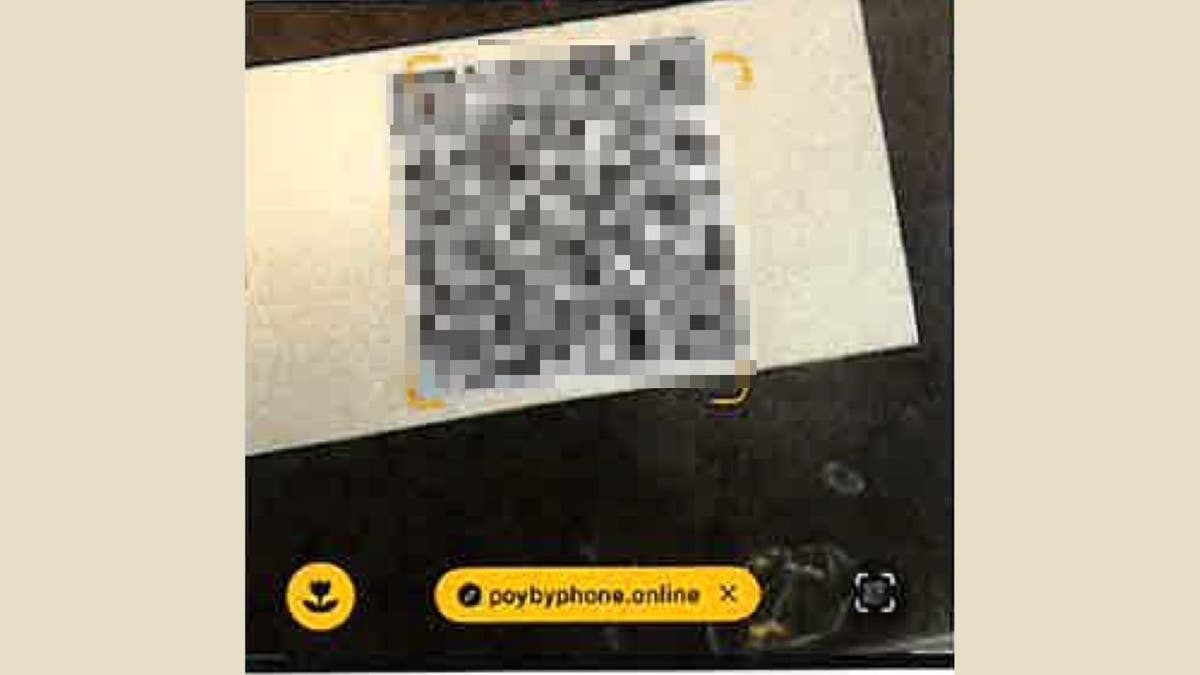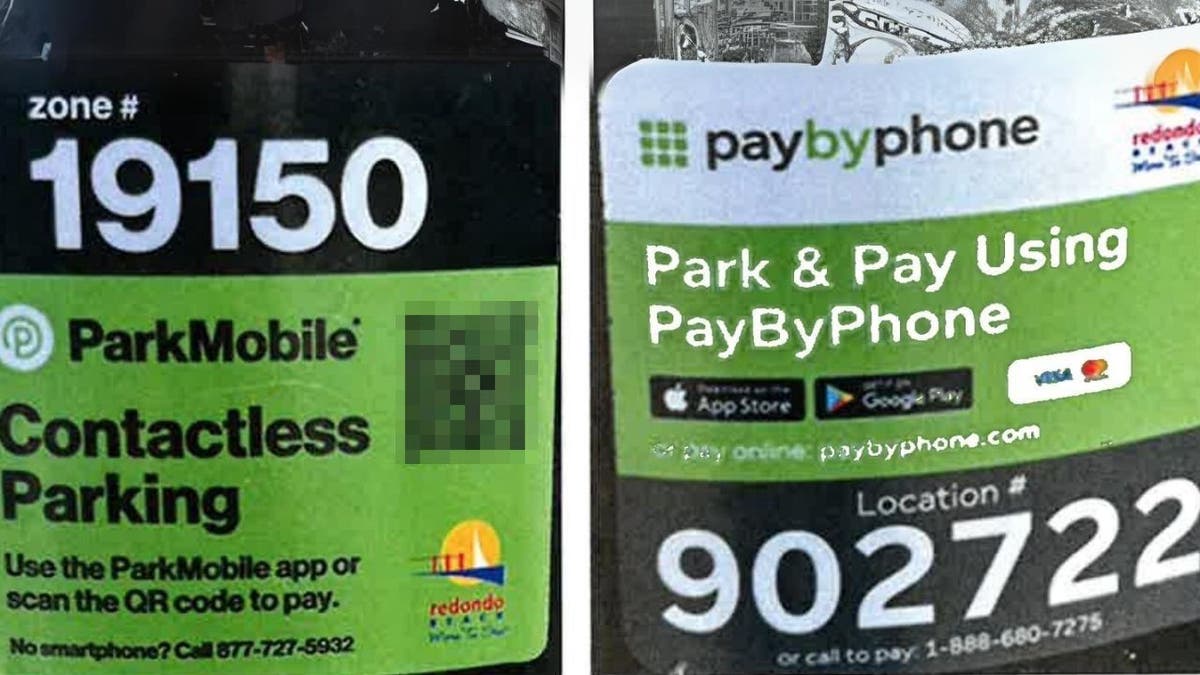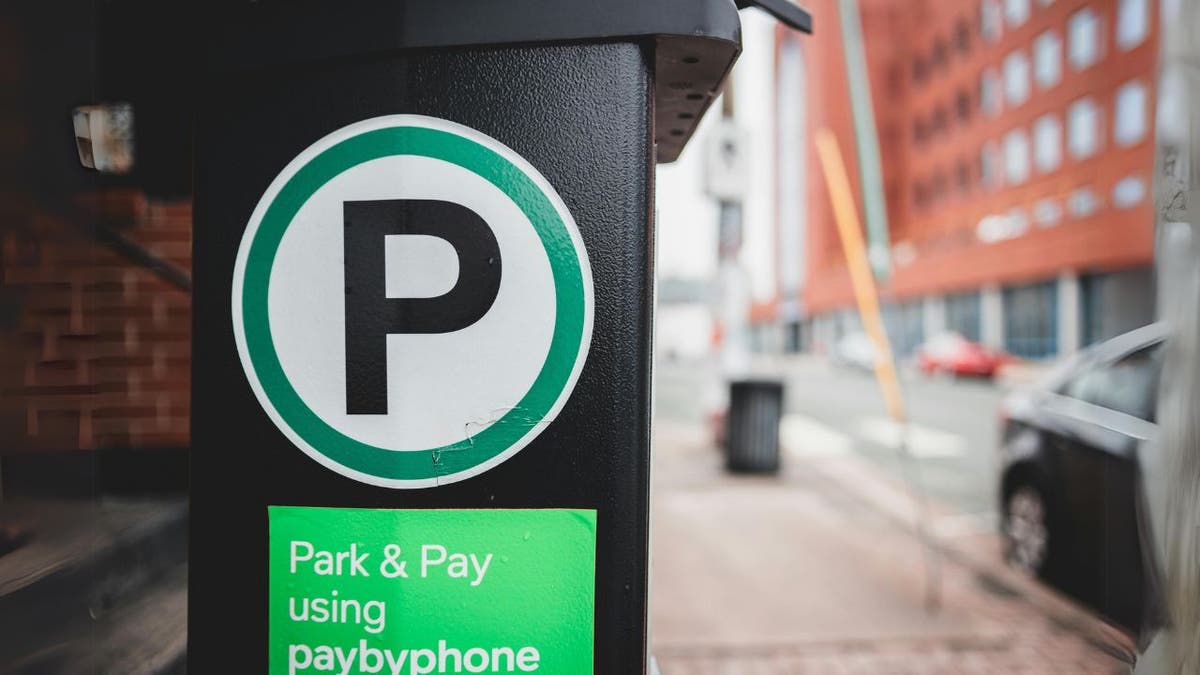Have you ever scanned a QR code to pay for parking and thought, “Wow, that was easy?”
Well, put away your smartphones because we’re about to tell you about a new sneak scam that’s giving parkers around the world a big headache.
You might think you’re pretty skilled when it comes to spotting online scams, but these scammers are seriously upping their game with QR codes.
Illustration of a fraudulent website and QR code (Redondo Beach Police)
QR codes: from convenience to scam
Remember when QR codes were just those funky square patterns you saw on product packaging? Well, they’ve come a long way, honey. Nowadays, they’re everywhere, from restaurant menus to, you guessed it, parking meters. But while they have made our lives easier, they have also opened a new avenue for scammers to exploit.
SMALL SIZE, BIG CLEAN: THE SMALLEST DISHWASHER IN THE WORLD

Fraudulent QR code (Redondo Beach Police)
DON’T FALL PREY TO THE MOST ARTISAN SCAMS OF THIS ELECTION SEASON
The scam in action
Imagine this. You’re headed to the beautiful beaches of Redondo, California. You find a spot, walk up to the meter, and see a QR code to make payment easier. Convenient, right? Not so fast. In a brazen move, scammers placed fake QR codes on about 150 parking meters throughout the Esplanade and Riviera Village area. These fake codes were strategically placed next to legitimate ParkMobile and PayByPhone labels. Talk about hiding in plain sight.
ILLEGAL MOVIE DOWNLOADS COULD BE HIDING DANGEROUS NEW MALWARE
Head down the coast to San Clemente and you’ll find a similar story. An unsuspecting driver fell victim to this digital scam. He scanned what he thought was a legitimate code, only to find himself on a fraudulent website. Within minutes, his wife’s credit card company was calling about unauthorized charges. Talk about a parking nightmare.
This scam is not limited to California. Law enforcement agencies across the country are reporting similar scams, now called “quishing.” These scams typically target high-traffic areas and aim to collect personal and financial information from unsuspecting victims.
ALERT: 106 MILLION AMERICANS EXPOSED TO MASSIVE DATA LEAK THAT CRACKS BACKGROUND CHECK FIRM

Images of ParkMobile and PayByPhone applications (Redondo Beach Police)
HOW TO AVOID BECOMING A VICTIM OF MOVING SCAM
How the scam works
These scammers use QR code technology to perform their tricks. Here’s your playbook:
The fake sticker: Scammers create stickers with QR codes that look real.
The similar URL: The criminals created websites with names eerily similar to legitimate parking payment sites. For example, PoyByPhone instead of PayByPhone. Find the difference? It’s not easy.
Data capture: Once you’re on the scammer’s site, they ask for your location and payment information, just like a real parking app would.
The quick getaway: With your details in hand, thieves start making unauthorized charges faster than you can say “parking ticket.”

Parking and payment station (Kurt “CyberGuy” Knutsson)
PROTECT YOURSELF FROM TECH SUPPORT SCAMS
How to protect yourself
1. Examine the URL: Before entering any information, carefully examine the web address for irregularities or spelling errors.
2. Use official apps: Whenever possible, use the city’s official parking app instead of scanning QR codes.
3. Inspect for tampering: Be wary of QR codes that appear to be an afterthought or that appear to have been added on top of existing signage.
4. Consider alternative payment methods: Sometimes using coins or a credit card directly on the meter is the safest option.
5. Keep your device updated: Regularly update your phone’s operating system and security software to protect against the latest threats.
6. Avoid public Wi-Fi for payments: public wifi Networks are often unsecured, making them prime hunting grounds for cybercriminals. When making parking payments, please use your mobile data connection. Remember, it’s better to use a little more mobile data than risk your financial information falling into the wrong hands. If you must use public Wi-Fi, consider using a VPN to encrypt your connection and protect your data from potential hackers. For the best VPN software, check out my expert review of the best VPNs for private web browsing on your Windows, Mac, Android and iOS devices.
7. Be careful with unsolicited messages: Ignore links sent via email, text message, or social media that claim to be for parking payments. Instead, manually log into the official parking website or use the city app.
8. Use safe scanning methods: Your smartphone’s built-in camera is usually sufficient for scanning QR codes. Avoid downloading third-party QR code scanning apps, which could contain malware.
9. Verify payment requests: If you receive a QR code for payment via email, don’t rush to pay. Contact the company directly through its official channels to confirm the request.
10. Don’t click on suspicious links: Be careful when clicking on any links that appear in emails, text messages or social media messages related to parking payments. Scammers often use these methods to direct you to fake websites that may look legitimate but are designed to steal your personal and financial information.
The best way to protect yourself from malicious links that install malware and potentially access your private information is to have powerful antivirus software installed on all your devices. This protection can also alert you to phishing emails and ransomware scams, keeping your personal information and digital assets safe. Get my picks for the best antivirus protection winners of 2024 for your Windows, Mac, Android, and iOS devices.
LAUNCHABLE 360-DEGREE TACTICAL CAMERAS ARE CHANGING THE GAME FOR THE MILITARY AND LAW ENFORCEMENT
What to do if you have been scammed
If you think you have been the victim of a QR code scam, don’t panic. Here is your action plan:
Contact your bank: Immediately call your credit card company or bank to report the fraud and freeze your accounts.
Submit a report: Contact your local police department.
Alert the FTC: File a complaint with the Federal Trade Commission at ftc.gov/complaint.
Monitor your credit: Keep an eye on your credit reports for any suspicious activity.
THE HIDDEN COSTS OF FREE APPS: YOUR PERSONAL INFORMATION
Kurt’s Key Takeaways
Remember, scammers are constantly developing their tactics, but so are the good guys. By staying informed and using a healthy dose of skepticism, you can enjoy the convenience of digital payments without falling victim to these parking predators. So, next time you’re out looking for a parking spot, keep these tips in mind and don’t let scammers fool you.
In your opinion, how can cities better protect residents and visitors from scams like these? Let us know by writing to us at Cyberguy.com/Contact
For more tech tips and security alerts, sign up for my free CyberGuy Report newsletter by heading to Cyberguy.com/Newsletter
Ask Kurt a question or tell us what stories you’d like us to cover.
Follow Kurt on his social channels.
Answers to the most frequently asked questions about CyberGuy:
New from Kurt:
Copyright 2024 CyberGuy.com. All rights reserved.









